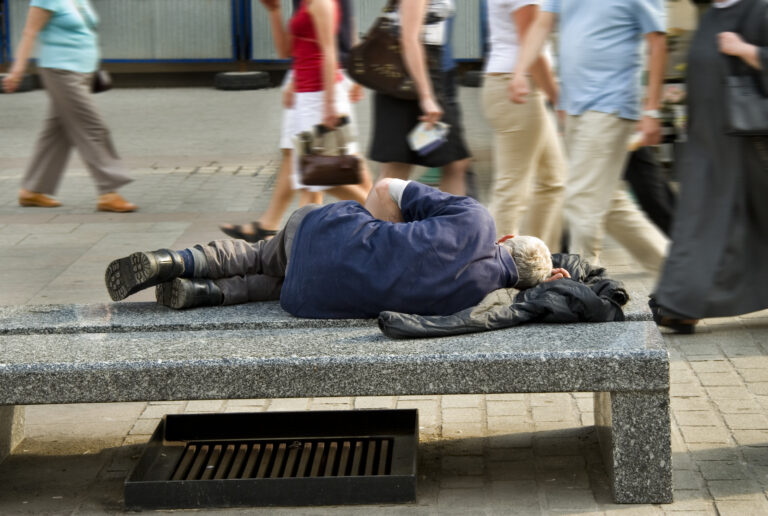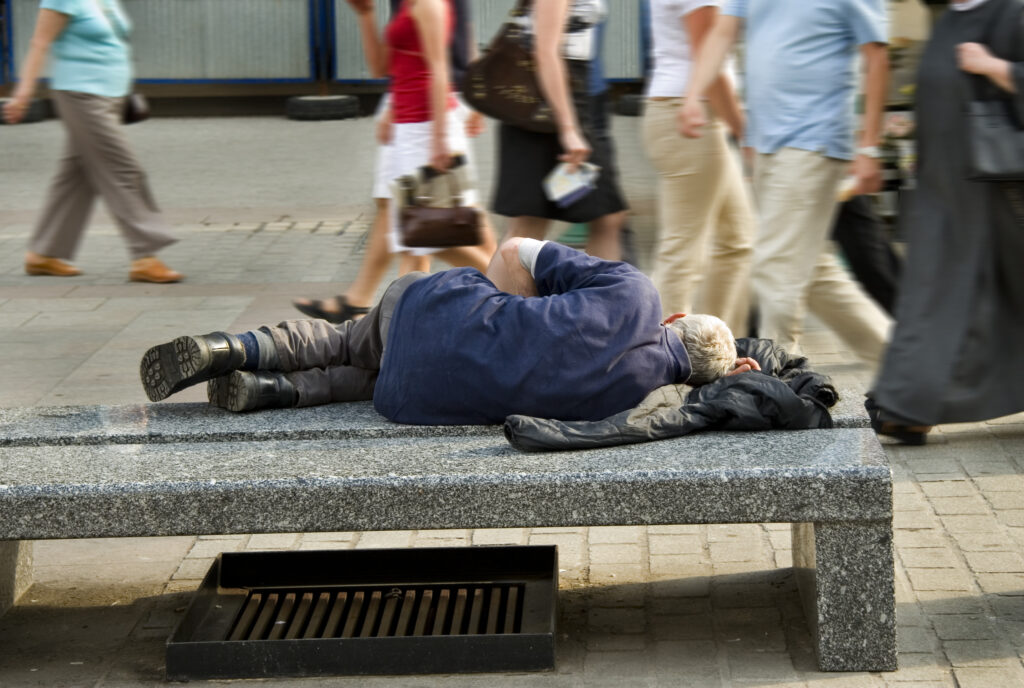What Causes Homelessness in America?

On any given day in the United States alone, hundreds of thousands of people across the country are unsure where they will lay their heads at night.
While it’s difficult to quantify it exactly, the most recent data, collected just weeks before Covid-19 was declared a national emergency, found that 580,466 people in America are experiencing homelessness.
With the gap between cost of living and pay wages continuing to widen, and more and more shelters across the country reporting an increase in the number of people looking for help, it’s safe to say this number is only growing.
But why, in the richest country on the planet, are so many people being deprived of a fundamental, basic, and necessary human right?
Why Do People Become Homeless?
Lack Of Access To Housing
Many are quick to argue that mental illness, addiction, and life circumstances are the reason some individuals are left without a place to sleep at night, and while those factors can play a role, above all else, homelessness is a direct result of a lack of access to homes – something the New York Times describes as an issue of “supply and demand.”
Take musical chairs for example…
“Imagine there are 10 people for nine chairs. One person, weighed down by poor health, does not make it to a chair. Is the problem that person’s health or the lack of chairs?”
The point being made here is that regardless of if someone is struggling with mental illness, addiction, a health crisis, etc. – if there are not enough homes, let alone affordable homes, no matter what help or treatment they get for those struggles, they will still be left unhoused.
Lack of Affordable Housing
Rising housing costs, inflation, and stagnant wages have only made matters worse pushing more and more people out of their homes and into shelters or onto the streets.
The dramatic increase in the prices of basic necessities such as groceries, rent, electricity, gas, and everything in between has made it difficult for many individuals and families to maintain their current living situations and has left many others fearful of the future.
For the 8 million extremely low-income households, or those living paycheck to paycheck, it has become virtually impossible to keep up with these expenses with at least half of their income going just towards housing itself.
Urban Policy Failures
On top of that, local, state, and national policy leaders continue implementing laws and strategies that only add to the growing number of people who are unhoused in America.
This can look like zoning rules that allocate the majority of residential land to single-family housing (making less housing available to single individuals – a population that makes up 70% of people experiencing homelessness), exclusionary architecture that essentially restricts the homeless from being in certain public spaces, or even large sums of money being invested into anti-homeless policy strategies instead of actual housing solutions.
Health
Health issues and lack of access to affordable healthcare also play a key role, not only causing thousands of Americans to become homeless but also often arising as a direct result of being homeless.
The National Alliance to End Homelessness explains that “Health and homelessness are inextricably linked…an acute physical or behavioral health crisis or any long-term disabling condition may lead to homelessness [and] homelessness itself can exacerbate chronic medical conditions.”
In addition, a lack of access to health insurance makes it difficult for those experiencing homelessness to break this cycle. According to the U.S. Department of Housing and Urban Development, “people living in shelters are more than twice as likely to have a disability compared to the general population.” Some conditions, such as heart disease, diabetes, and HIV/AIDS, are even found to occur at up to three, four, and five, times the rate in those experiencing homelessness.
Racial Inequalities
Generations of structural racism and discrimination, particularly within the criminal justice system, but also ingrained in nearly every aspect of society have led to drastically disproportionate rates of homelessness among BIPOC communities.
For example, Black and African Americans, who represent 13 percent of the general population, make up 39 percent of people experiencing homelessness and over half of homeless families with children. They are also six times more likely to be incarcerated than their White counterpart.
Having a criminal record then creates enormous obstacles in obtaining both housing and employment, causing many formerly incarcerated individuals to turn to homeless shelters and street encampments as a place to reside.
Other Factors
While access to affordable housing and healthcare, urban policy failures, and generations of racial inequalities have all played a main role in the current homelessness crisis facing America, they cannot show the whole picture. Other contributing factors such as domestic violence, family conflict – particularly for LGBTQ+ individuals – and poverty are also at play and important to consider to fully grasp the complexity of homelessness at a societal, communal, and individual level.
What Is the Solution To Homelessness?
Decades of corrupt structural dynamics, systemic shortcomings, and policies failing to meet basic human needs can not be fixed overnight, but real change can happen when we come together to empower those who are struggling in our communities.
At J&J Lovelace Foundation, we are on a mission to bridge the gap between surviving and thriving for those experiencing homeless and other hardships by raising money to provide tangible resources, tools, and support for a better future.
Join us on our mission by making a donation to the J&J Lovelace Foundation today. Your generosity will be used to create affordable housing solutions, provide life-saving substance use and mental health treatment, help people gain employment through training programs, and improve the living conditions for those who are unhoused.
You have the power today to change tomorrow. Donate now or learn other ways you can get involved!
-Written by Cassie Cipolla for J&J Lovelace Foundation

